
10 Q
7th - 12th
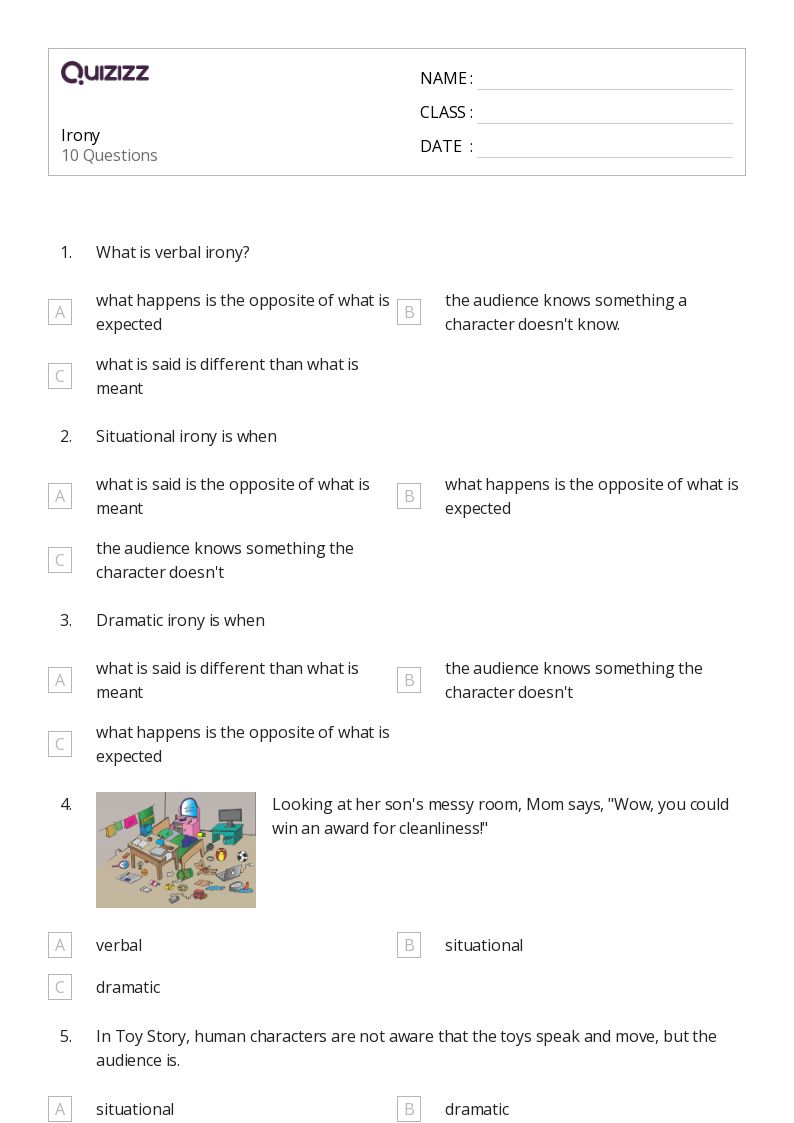
10 Q
7th

10 Q
7th - 12th
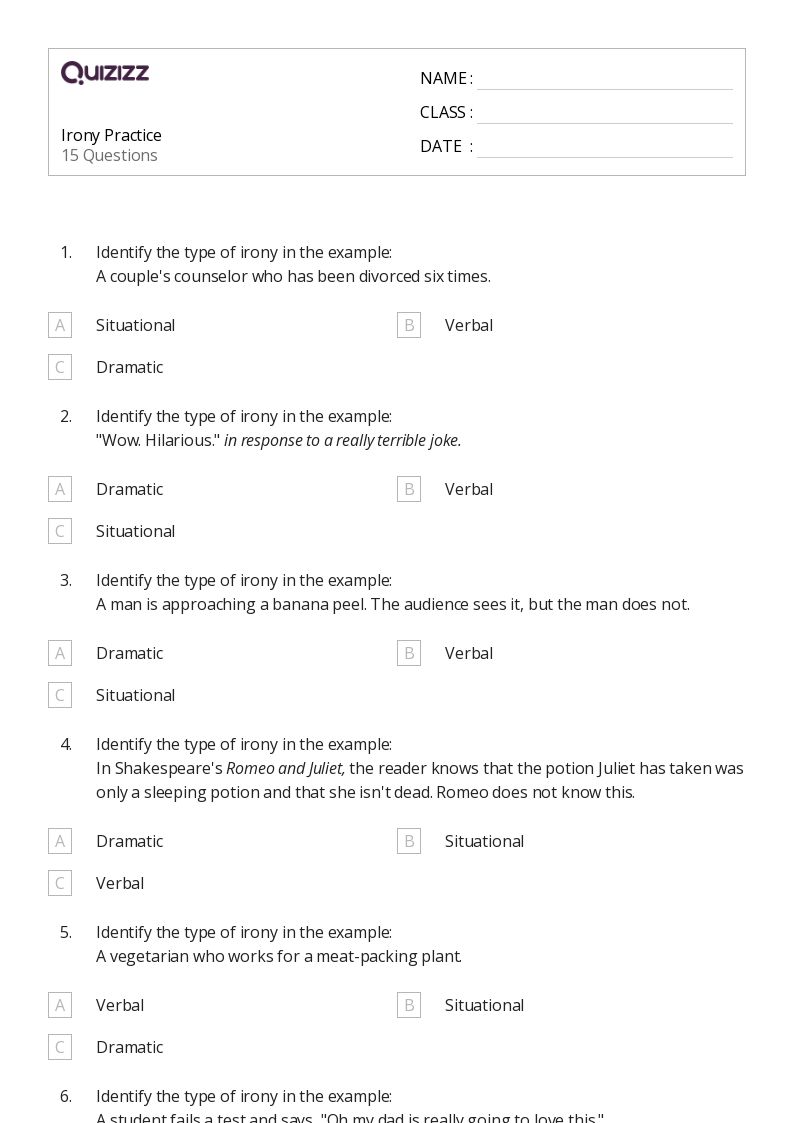
15 Q
7th - 8th

15 Q
7th - 8th

15 Q
7th - 8th
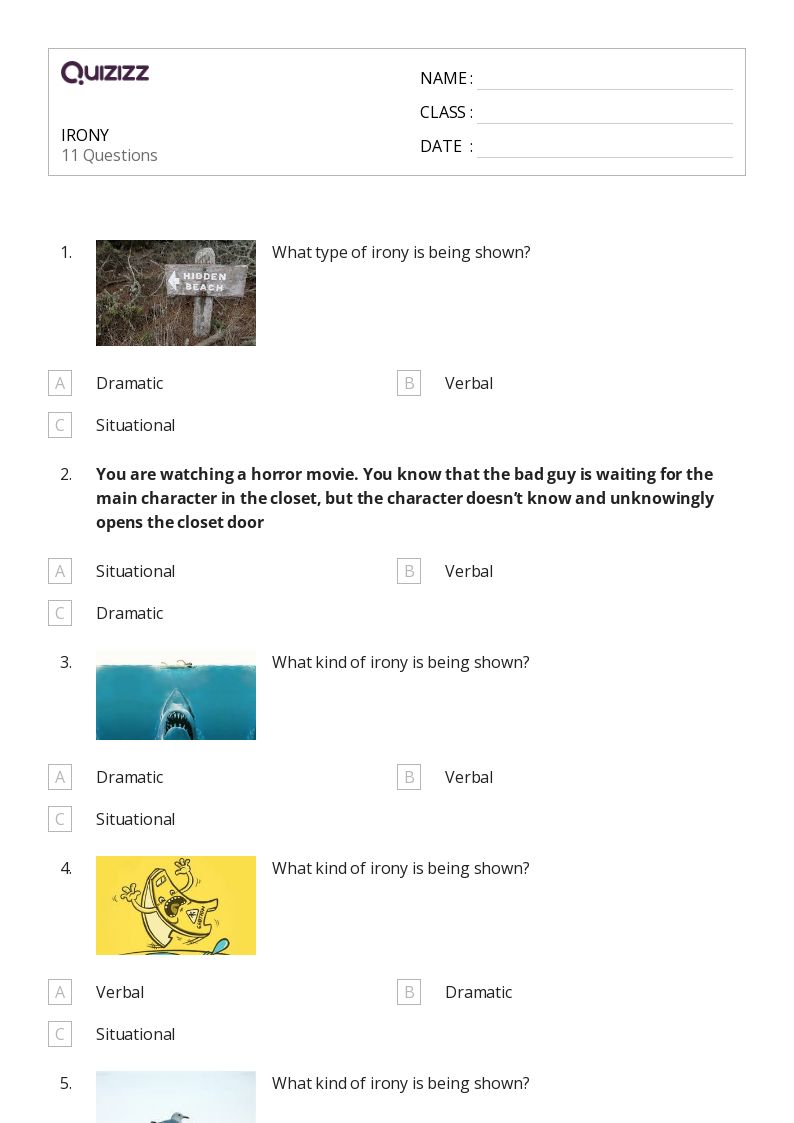
11 Q
7th
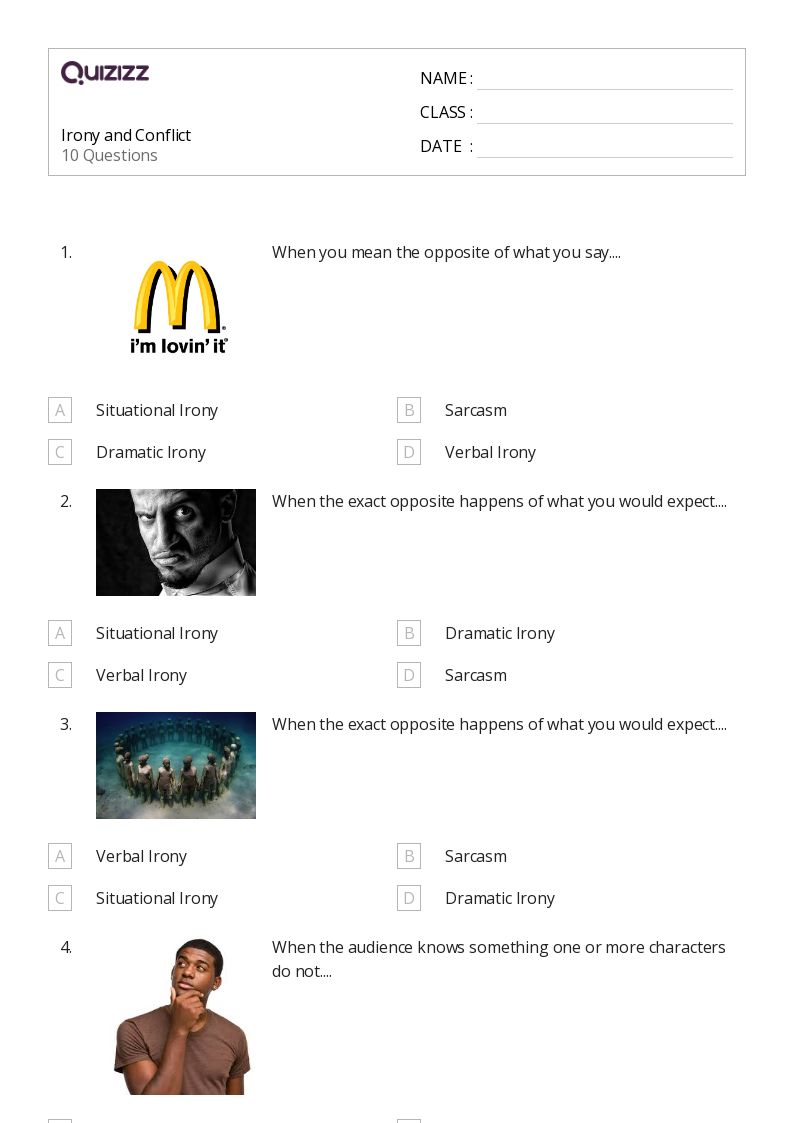
10 Q
7th - 12th

20 Q
7th - 12th

10 Q
7th - 10th

10 Q
7th - 8th

15 Q
7th - 8th

20 Q
7th - 8th

8 Q
6th - 7th

20 Q
7th - 8th

7 Q
7th - 9th

20 Q
6th - 7th

12 Q
7th

11 Q
6th - 7th

10 Q
7th

20 Q
7th
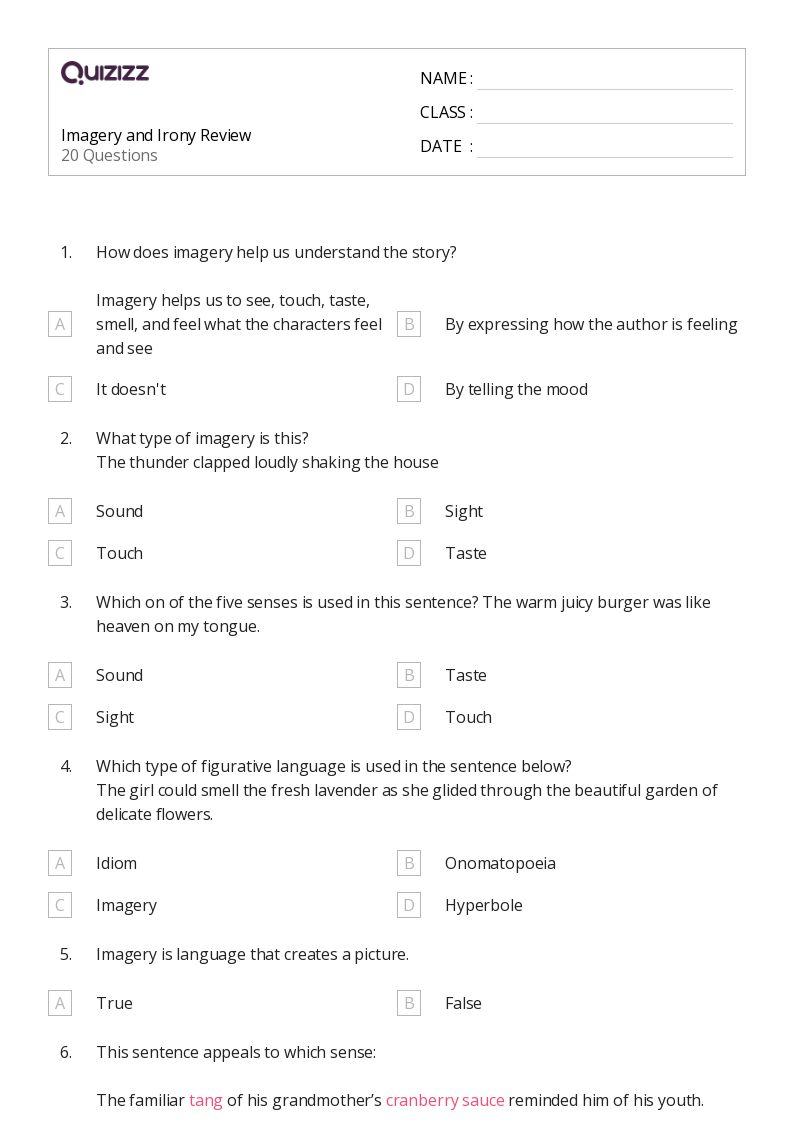
20 Q
6th - 7th
Explore Irony Worksheets by Grades
Explore Other Subject Worksheets for class 7
Explore printable Irony worksheets for 7th Class
Irony worksheets for Class 7 are an excellent resource for teachers looking to enhance their students' understanding of this essential literary device. These worksheets focus on various aspects of irony, including situational, verbal, and dramatic irony, and are designed to help students develop their reading and writing skills. By incorporating grammar, language and vocabulary exercises, these worksheets provide a comprehensive approach to teaching irony in the context of literary devices. Teachers can use these worksheets to create engaging and interactive lessons that will not only improve students' understanding of irony but also strengthen their overall language and literacy skills. With a strong foundation in irony, students in Class 7 will be better equipped to analyze and appreciate the nuances of literature and other forms of written communication.
Quizizz is a fantastic platform that offers a wide range of resources for teachers, including irony worksheets for Class 7 and other engaging activities that promote reading, writing, grammar, language and vocabulary development. In addition to worksheets, Quizizz provides interactive quizzes and games that can be used to reinforce students' understanding of literary devices, such as irony, and other essential language skills. Teachers can easily integrate Quizizz into their lesson plans, creating a dynamic and interactive learning environment that caters to the diverse needs of their Class 7 students. By utilizing the various resources available on Quizizz, teachers can ensure that their students are well-prepared for the challenges of advanced language and literary studies in the future.
